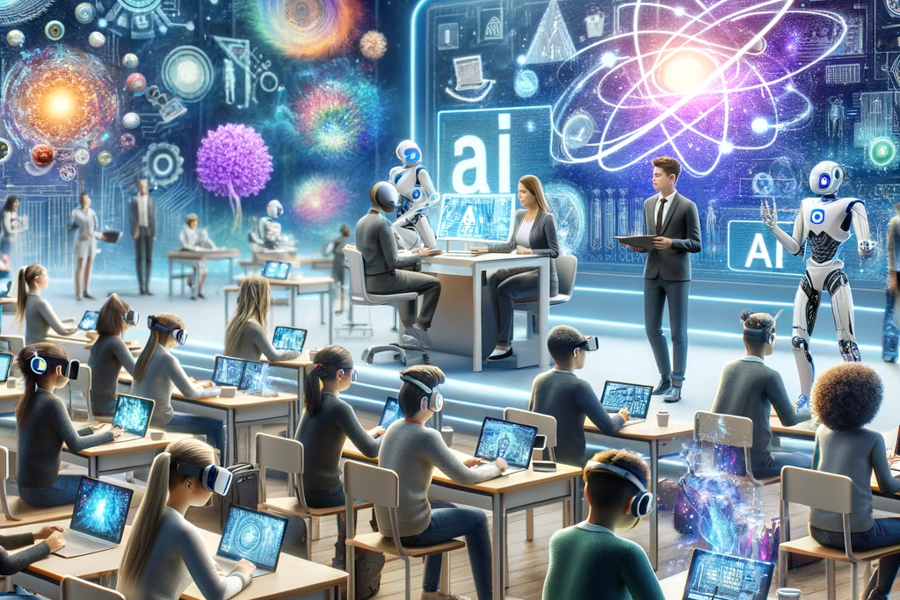
The educational landscape is undergoing a profound transformation, driven by the advancements in artificial intelligence (AI). Pioneers like Geoffrey Hinton of the University of Toronto and Google Brain, and Yann LeCun of Facebook AI Research, have laid the groundwork for a future where AI and education intersect to create unprecedented learning experiences.
AI’s integration into education marks a departure from the traditional one-size-fits-all approach. It brings forth a personalized learning paradigm, where AI algorithms analyze individual learning patterns, preferences, and performance to tailor educational content. This customization ensures that each student’s learning journey is aligned with their unique strengths, weaknesses, and learning styles, thus enhancing the effectiveness and engagement of educational processes.
The role of AI in education extends to fostering creativity and critical thinking. By introducing complex, AI-powered problems and scenarios, students are encouraged to think innovatively and approach problems from different angles. This aspect of AI-driven education is crucial in nurturing skills that are becoming increasingly important in a rapidly evolving world.

Another significant impact of AI in education is its potential to democratize access to quality learning. AI can break down geographical and socio-economic barriers, providing high-quality educational resources to students in remote or underprivileged areas. This democratization of education is a step towards ensuring equitable learning opportunities for all, irrespective of their background.
In preparing students for a future dominated by technology, AI in education plays a pivotal role. As students interact with AI technologies in their learning process, they gain a deeper understanding and appreciation of this field. This exposure is invaluable in equipping them with the necessary skills and knowledge to thrive in a tech-centric future.
Furthermore, the integration of AI into education is not a straightforward path and comes with its own set of challenges and ethical considerations. It is crucial to maintain a balance between leveraging the power of AI and ensuring ethical use and human oversight. The aim is to enhance the educational experience without losing the human touch that is essential for effective learning and development.

As education continues to evolve, AI is expected to play an increasingly central role. The future of education, as envisioned by experts like Hinton and LeCun, is one where AI not only supports but enhances the learning experience. It promises an era of adaptive, engaging, and inclusive education, capable of meeting the diverse needs of learners around the globe.
The potential of AI in education also includes its ability to provide real-time feedback and assessment, enabling educators to monitor and support student progress more effectively. AI-driven analytics can offer insights into learning patterns, helping educators to identify areas where students struggle and succeed, allowing for timely interventions and support.
Moreover, AI can facilitate collaborative learning environments, connecting students from different parts of the world, fostering cross-cultural understanding and teamwork. This global classroom concept, powered by AI, prepares students for a future where cross-border collaborations and digital workplaces are the norm.
In conclusion, the intersection of AI and education, guided by the pioneering work of experts like Geoffrey Hinton and Yann LeCun, is charting a course towards a more dynamic, personalized, and accessible educational landscape.
As this field continues to evolve, it holds the promise of reshaping not just how we learn, but also how we think about and approach education in the 21st century![]()































